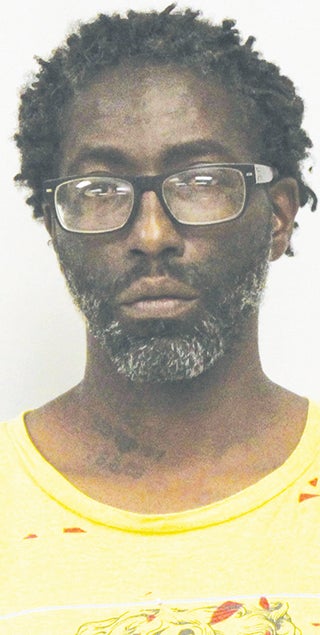‘Light’ sentence after jury finds man guilty
Published 8:53 am Thursday, January 5, 2017
By his own admission, Judge Jerry Cash Martin is “usually very strict” about DWI cases, but he decided to show mercy on a “nice guy” in Davie Superior Court.
The accused, James Michael Smith, 28, of Advance, was charged with DWI following a single-vehicle accident on Milling Road Feb. 8, 2014 and appeared before Martin Dec. 13.
According to arrest information, Smith was driving a Dodge pick-up truck on Milling Road around 9:50 p.m. when he lost control of the truck in a curve and ran off the road, striking a tree. Smith told N.C. Highway Patrol Trooper Adam Ward that a deer had run out in front of him, causing him to wreck.
Brent Crotts of Davie County EMS testified he knew Smith, as they had been co-workers in the EMS prior to the accident. Crotts said Smith was complaining of a headache and knee pain and initially refused to be transported to the hospital. About an hour later, Crotts said, EMS was contacted by highway patrol and called back to the scene, as Smith was asking to be taken to the hospital. Crotts noted Smith’s speech was slower than what Crotts knew it to be normally and that Smith was crying, not something Crotts had ever seen him do before.
Smith’s attorney, Brandy Koontz, asked Crotts if it was possible a person could be in shock after an accident such as Smith’s and not know the extent of their injuries, and Crotts said that was possible.
Ward testified Smith’s speech was slurred, he had red, glassy eyes and there was a mark on his left shoulder consistent with the type of mark a seat belt would make during an accident. With the jury out of the room, Ward said Smith told him he had taken Klonopin earlier in the day. Koontz asked Ward why it wasn’t in his report, and Ward answered, “I just remember it. This was memorable to me.”
Assistant DA Steve Boone asked Ward, “You testified in district court about the Klonopin and the defendant admitted he’d taken Klonopin that day?” Ward said yes.
After some discussion, with Koontz arguing that information was not admissible because it wasn’t noted in the report and it would be inappropriate for the jury to hear about testimony from district court, Martin ruled the information was admissible.
Ward said Smith performed poorly on the field sobriety tests he was able to administer and that Smith showed six out of six possible clues on the HGN (Horizontal Gaze Nystagmus) test, an indication to Ward that Smith was impaired. He also said there was “no corrective action,” taken by Smith prior to the accident, proven by the absence of skid marks on the road and tire tracks on the side of the road.
Smith was transported to the hospital by ambulance, and after Ward and another trooper, Daniel Hall, finished processing the scene, Ward went to the hospital’s triage area, where he read Smith his rights and attempted to find a nurse to draw Smith’s blood. Ward said Smith was “very polite and respectful” but said he refused to have his blood drawn.
Koontz asked Ward why he didn’t complete the second page of the report, and Ward said that portion is voluntary and he didn’t “feel it was the best thing to do, to ask him every single question” in the hospital.
She told Ward that Smith consented by signature to have his blood drawn, something Ward said he didn’t recall. She then noted Ward he had “a poor memory” and said, “Your memory seems to be lacking today.”
Hall testified he knew Smith prior to seeing him at the accident scene.
“He was going to be a trooper and he was a volunteer fireman,” Hall said. “We went cat fishing one time. He’s been to my house.”
Smith’s truck, Hall said, “hit the tree with a very significant impact.”
He said troopers are trained to be able to tell from the marks on the road if a vehicle swerved to miss something, and that Smith’s line of travel indicated he drove in a straight line for about 50 feet before hitting the tree.
“Most people would have taken corrective action, but it looked like he just rode the curve out,” at 55 mph, Hall said.
As far as Smith’s demeanor, Hall said his recollection differed from that of Ward and Crotts.
“He did cry but he was also kind of grinning, like his normal self. He usually had a smile on his face. He is a likable person. He didn’t cry all night; he was up and down, different emotions kicking hard, either happy or sad, no in between,” Hall testified. “He hit a big tree at 55 mph. His dad (who was on the scene) wanted to take him to the hospital but that wasn’t an option for us. He either had to go by ambulance to the hospital or be arrested. He told us he’d taken the Klonopin, he had a wreck with no corrective action, and I watched the HGN test being administered, six out of six clues. That’s impairment.”
Smith’s mother, Rebecca, testified she, her son, and her daughter had all been together most of the day prior to the accident and she had not seen him take any medicine. She said he had been prescribed Klonopin, a trade name for Clonazepam, for sleep problems, and that he would usually take one before bed and if he still couldn’t sleep, he could take another one.
Dr. Roger Miller, a chiropractic physician in Winston-Salem, testified he began treating Smith after Smith was struck by lightning years ago. He saw Smith 18 days after the accident and said Smith had “poor coordination in his eyes, difficulty following my finger, weakness in his neck muscles, numbness in his right lower jaw, spinal tenderness and slowed movements.”
On cross-examination, Miller testified he is not trained to prescribe medicine and was not aware at the time of the appointment Smith was taking Klonopin.
Roxanne Yankee, a pharmacist, testified Klonopin is an anti-depressant that can cause sleepiness, tiredness, slow body movements and slowed reaction time, and that its half-life is about 30 to 40 hours, meaning it takes that amount of time for half of the medication to leave the system.
In her closing argument, Koontz told the six man, six woman jury the night of the accident, it was rainy and dark, and Smith ran off the road trying to avoid a deer. She said the fact Smith’s truck was “lifted” made it more likely to flip if the steering wheel was jerked too hard. Hall later said the truck did not flip.
She said Smith’s nystagmus was caused by a head injury and that although he did give consent to have his blood drawn, it wasn’t done, and the state offered no information that showed what, if anything, was in Smith’s system at the time of the accident.
Boone argued Smith told both troopers as well as Crotts that he’d taken Klonopin earlier the day of the accident.
“The defense attorney made a big deal that the trooper didn’t put in his report that Smith was taking Klonopin, and yes, he probably should’ve put it in the report but just because it’s not in the report doesn’t mean it’s not so.”
He told the jury no one testified Smith was actually injured in the wreck, and that the evidence of impairment was the wreck itself. “He went to sleep because of the Klonopin. That’s impairment,” Boone said.
The jury deliberated about 20 minutes before returning a guilty verdict, prompting Smith to shake his head. When asked if he had anything to say, Smith said, “I was innocent.”
He had a clean driving record and completed a drug and alcohol assessment and treatment prior to his court date, and Martin sentenced him to 60 days, suspended 12 months unsupervised probation, and pay a fine of $100 and court costs. He must complete 24 hours of community service, surrender his license and not operate a vehicle until licensed. He is eligible for a limited driving privilege.
Martin told Smith, “I appreciate the way you have conducted yourself, and I think that speaks well of you. You seem to be a nice fellow, a nice guy, and so I am entering the lightest judgment I can. I am usually very strict about these cases.”



